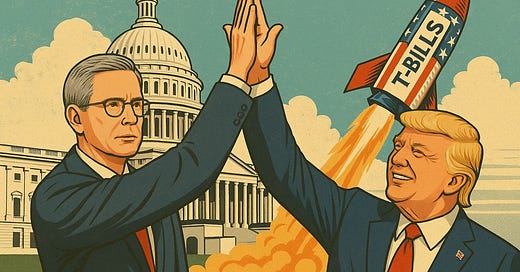Last week the US Senate, with a bipartisan super majority, passed the GENIUS Act, sending it to the US House, where a similar bill, the STABLE Act, garnered a large, bipartisan majority within the House Financial Services Committee in April. House leadership is expected to add some of the STABLE Act’s more stringent requirements for issuer disclosure and Federal oversight to the GENIUS Act before sending it back to the Senate for approval. Then it will go to the desk of crypto-enthusiast President Trump for his signature.
How did this remarkable shift in the US political economy occur, seemingly overnight, and what does it imply? As I explain in a companion article at Seriously, Marvin?!, a chance financial innovation met with a unique coincidence of populist anger, rising crypto wealth, and shifting national priorities to push America to officially embrace stablecoins. That embrace, wittingly or not, takes the US one step closer to a dream of some of the last century’s top economists to split the banking sector into safer “narrow banks” and merchant banks. But it also has significant geopolitical and global macro implications in the current environment.
If stablecoin-based narrow banking takes off in the US as I think it may, it will be a revolution in money and banking with broad domestic and international implications, creating many winners and losers. Here I will delve into the details of what in entails, what it implies, and who will gain and lose from it.




